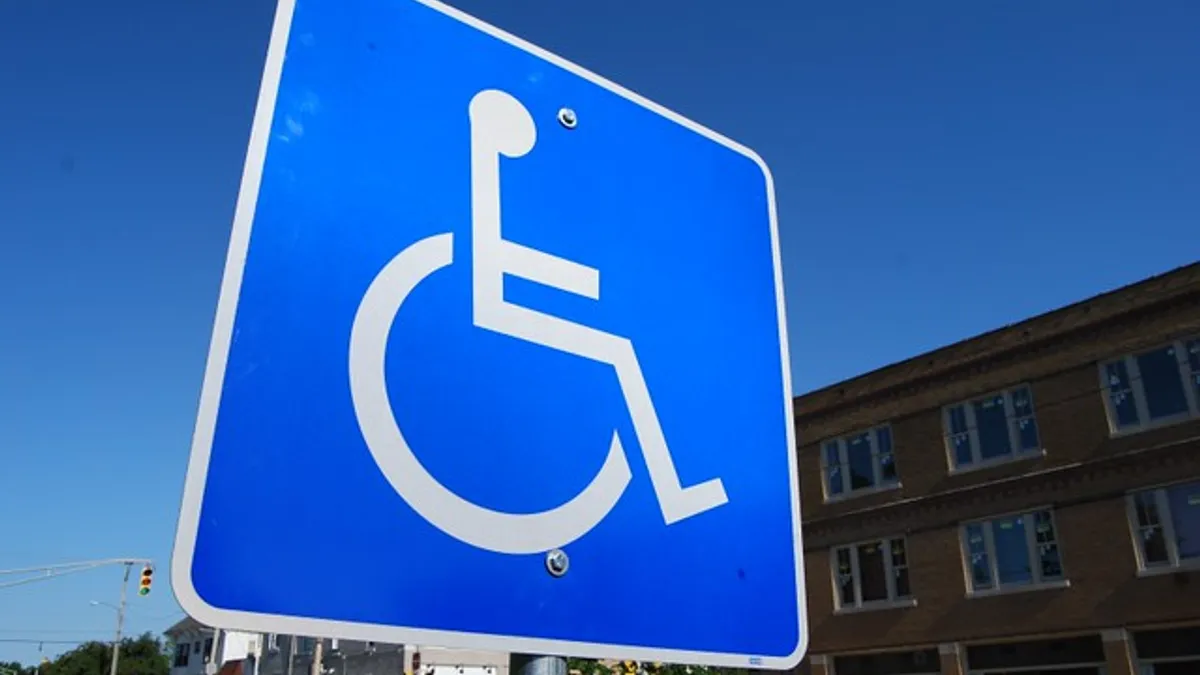Dive Brief:
- Smart Cities for All — a collaboration between the advocacy groups G3ict and World Enabled — partnered with AT&T to launch the Inclusive Innovation Playbook, which lays out the steps cities and their partners can take to ensure innovation prioritizes accessibility and a commitment to people with disabilities.
- The playbook outlines five "plays" and related actions that cities can take to bring inclusion and accessibility to innovation. It suggests focusing on people, economic assets, infrastructure, networking and enabling public policies.
- The playbook follows on the heels of a survey by Smart Cities For All that found 60% of global experts said smart cities are failing people with disabilities. In that same survey, a third of respondents were unsure if people with disabilities could use the products and solutions they are developing, while only 43% of respondents said they had a strong understanding of accessibility and inclusion in their products.
Dive Insight:
This playbook builds on Smart Cities For All's work around making cities more accessible for people with disabilities. Last September, the group launched Inclusive Innovation for Smarter Cities, a project to promote design and technology that reaches people with disabilities as well as older urban residents. That project, which rolled out in New York City and Chicago, included roundtable discussions with entrepreneurs and innovation experts to gather information on how cities can foster greater inclusion as they look ahead to smart cities.
Chicago has experience when it comes to experimenting with more accessible design. In October, Smart Cities For All announced it would pilot its Smart City Digital Inclusion Maturity Model in Chicago. The Microsoft-designed initiative analyzes a range of city functions — like communications, training and technology standards — and defines performance indicators and metrics towards expanding accessibility.
Cities are quickly realizing that if they are to become smarter, initiatives must help improve the lives of some of their most disadvantaged residents. That includes partnering with companies to help the blind navigate urban environments, with groups like the Denver-based Blind Institute of Technology advocating for more progress in that area. Playbooks such as the one unveiled by Smart Cities For All should help governments and their partners in the private sector be deliberate in their planning and help keep inclusivity top-of-mind.












